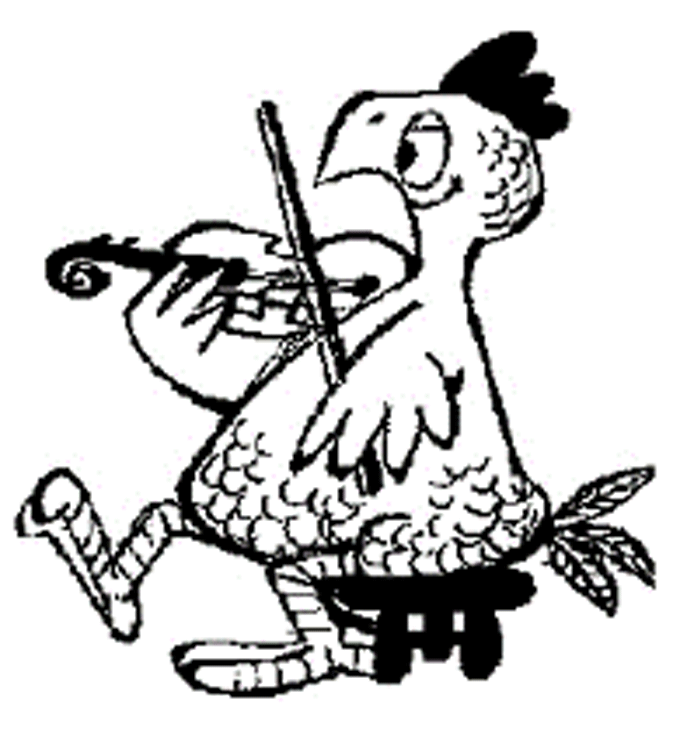
BY THE FIDDLER
Many memorable lines have been penned by The Fiddler. These include the following:
When shall we three meet again?
In thunder, lightning, or in rain?
When the hurly-burly’s done
When the battle’s lost and won.
Fair is foul, and foul is fair
Hover through the fog and filthy air.
- Chamisa under fire over US$120K donation
- Mavhunga puts DeMbare into Chibuku quarterfinals
- Pension funds bet on Cabora Bassa oilfields
- Councils defy govt fire tender directive
Keep Reading
Or to put it slightly differently, these lines would certainly have been written by The Fiddler had an upstart by the name of Shakespeare not got in first some 400 years ago. Thus, we can say The Fiddler’s thunder was stolen by this nerd. It should also be spitefully pointed out that when the upstart wrote these lines in 1606, in the 1590s in The Faerie Queene, Edmund Spenser had already used the line, “Then faire grew foule, and foule grew faire in sight.” All of which begs the question, which came first, the chicken or the egg?
Well, that’s exactly why we have the Copyright law. The law gives literary midgets (non pc) like The Fiddler the right to copy anything he/she feels like copying providing he/she copies it right. (Apologies for lapsing into American). University students proclaim that they have a constitutional right to plagiarise or at least consider it to be a very useful pastime. They think that quotation marks are bodily indentations that you get if you sit reading a book for more than five minutes.
The following excerpt is plagiarised without any sort of attribution from that fount of plagiarism, the all almighty, all-knowing Internet:
“In 1922 Eliot published the important popular poem The Waste Land. Decades later it was discovered that the poem was largely a hodgepodge of text from lesser-known poets, one of them named Madison Casein, and his poem entitled The Waste Land.
Well before the publication of The Waste Land, Eliot had already made no secret about his appropriation. In 1920 he published an essay that famously said, ‘Immature poets imitate, mature poets, steal; bad poets deface what they take, and good poets make it into something better, or at least something different.’ ”
The authors of this piece have threatened to sue The Fiddler for everything he/she’s got, which is a big fat nothing. (Did you really think the stingy editor would actually pay me to write this rubbish? It would be like trying to get diesel out of a rock!)
In fact, The Fiddler has got a tattoo on his/her belly with the word “sue” enclosed in a heart. When people ask whether this is an expression of his/her undying love for Sue, he/she has to explain that it is rather an expression of the fact that as a lawyer he/she loves to sue people. Like Snoopy, he/she once sued a baby, but although he/she won the case hands down, the payout came in soiled nappies.
The Fiddler has recently started to hear the ominous beat of the war drums and he/she worries that conflict is about to rear his ugly head. (Note a conflict’s head could only be on the shoulders of a bellicose male.) No, my loyal, sole reader: The Fiddler is not referring to the Russian bear mauling Ukraine or by Kim Jong-Un upsetting the USA by pelting it with a few personally autographed intercontinental nuclear weapons. What The Fiddler has in mind, in his/her highly disturbed mind, is a conflict closer to home which shows all the signs of becoming a full-scale Hurly-Burly.
The Fiddler is concerned that this clash of political Titans, which has come to be known as “The Colours War”, could rapidly spin out of control and not only cause chaos within the county, but also threaten world peace. To avoid this catastrophe, it may even be necessary to deploy a UN Peace Keeping Force, provided their uniforms are not yellow in colour, not even mellow yellow.
The battle lines were drawn by the political parties and loud insults were exchanged. No holds were barred and the “first come first served” doctrine was quickly replaced by the “everyone for themselves” doctrine. Some belligerents have even committed war crimes. In one dreadful incident, soldiers snuck into their enemy’s bunker at night and painted the inhabitants’ bellies a day glow yellow. They had actually intended to paint their hearts that colour but one of the raiders could not stand the sight of blood. The marauders left behind a message saying, “You can yell ‘ow’ all you like but you will forever be known as yellow bellied vermin.” The victims of this bellicose action were not even able to give a belly laugh but instead went down with yellow fever. On another occasion, a belligerent force built a tempting yellow brick road with a horrendous dead end hoping that opposing forces would be silly enough to use the road. There was also an acute shortage of yellow roses as one of the combatant parties had bought up all the yellow roses in the country. This particular atrocity came to be referred to as the “War of the Roses.”
Terrible things occur in times of war. Hence The Fiddler’s/ upstart’s words “fair is foul and foul is fair.”
Casualties continued to mount, but still no one was prepared to surrender as this would entail the humiliation of having to wave a white flag. Fortunately the conflict was finally resolved by a penalty shoot-out presided over by the zebra eats roses organisation, which declared a pyrrhic victory. Thus battle was lost and won. Peace was greeted with thunderous applause and much relieved civilians were no longer in danger of being struck by lightning when relieving themselves in their thunderboxes. However, after the cessation of hostilities many people still had to be treated for astraphobia, which as you all know is an anxiety disorder in which a person has an intense fear of thunder and lightning from loud, irresponsible politicians.
It is important to point out here the origins of the phrase, “Stealing one’s thunder.” Of course, you would find it difficult to grab hold of thunder and take it away. What the phrase means is to “use the ideas, policies, etc., devised by another person, political party, etc., for one’s own advantage or to gain attention or approval or to anticipate their use by the originator.”
“John Dennis was an unsuccessful playwright. In 1704, his play called Appius and Virginia was unremarkable except for his invention of a new and effective method for producing the sound of thunder for the stage. Appius and Virginia closed quickly.
Later, Dennis attended a production of Macbeth and discovered that the theatre was using his own method for producing the sound of thunder during the scene with the witches. Outraged and with a face like thunder, he is reported to have leapt to his feet and shouted, ‘Damn them! They will not let my play run, but they steal my thunder.’ The actual words are in doubt and are also reported as ‘That is my thunder, by God; the villains will play my thunder but not my play!’ One web site, however, acts the spoiler by suggesting that it is also possible that the phrase did not originally refer to this anecdote but to stealing thunder from the Roman sky god Jupiter.”
As to the question when the threesome will meet again, this is entirely dependent upon whether the meeting has been sanctioned by the authorities. If not the meeting will attract thunder.
- Post script: The dictatorial editor has just given The Fiddler a final warning against the use of puns. The Fiddler’s lightening-quick response was, “Very Punny.” Battle lines have been drawn and Fiddlesticks have also been drawn.










